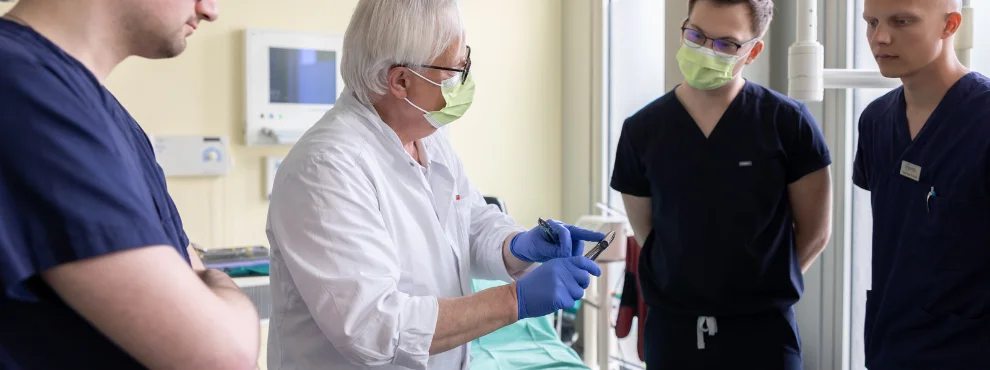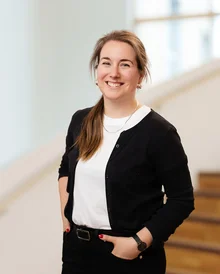Change of leadership at the Oral Pathology and Oral Medicine Working Group
Prof Dr Joachim Jackowski from Witten/Herdecke University wants to strengthen specialist knowledge as the new chairman - in practice, research and teaching.

He has helped shape the working group with his expertise and commitment over many years - now he is at its head: Prof Dr Joachim Jackowski, Chair of Oral Surgery and Dental Emergency Care at Witten/Herdecke University (UW/H), was elected 1st Chairman of the Working Group for Oral Pathology and Oral Medicine (AKOPOM) under the umbrella of the German Society of Dentistry and Oral Medicine at this year's symposium of the Working Group for Oral and Maxillofacial Surgery (AGOKi) and the Working Group for Oral Pathology and Oral Medicine (AKOPOM).
Prior to his election, Prof Jackowski was an active member of the advisory board and has been involved for many years in the preparation of numerous dental and medical guidelines of the Association of Scientific Medical Associations (AWMF), including as an elected representative of AKOPOM.
Focus on oral medicine: strengthening early detection and training
Modern dentistry, oral and maxillofacial medicine encompasses far more than just the highly specialised diagnosis and treatment of teeth and the periodontium. It is also responsible for oral medicine, which primarily deals with the detection and treatment of changes in the oral cavity in people with other serious underlying diseases. These include primary diseases of the oral mucosa as well as complaints that occur in connection with medical treatment - for example as a result of radiotherapy or chemotherapy, organ transplants or dialysis. The masticatory organ, and therefore also the oral cavity, can be the first place where a systemic disease makes itself felt. "We observe systemic diseases that manifest themselves through changes in the oral cavity - for example mucosal ulcers in Crohn's disease, dry mouth in Sjögren's syndrome or inflammation of the mucous membranes in systemic lupus erythematosus," explains Prof Jackowski.
It is also crucial to be able to recognise and correctly classify so-called oral potentially malignant changes at an early stage. For example, a seemingly mundane ulcer should not be treated as such for weeks, as it can be an early sign of oral carcinoma. "With around 10,000 new cases per year, this cancer is one of the ten most common malignant tumours in Germany," says Prof. Jackowski.
The dentist is therefore calling for even more attention to be paid to oral medicine and oral pathology in research, teaching and practice. At the UW/H, these disciplines have long been an integral part of the degree programme - even before the new dental licensing regulations stipulated "cross-sectional area of oral medicine and systemic aspects" as an examination subject. In his new role as chairman, Prof Jackowski sees the opportunity to make the Oral Pathology and Oral Medicine working group better known among students so that they can benefit from the interdisciplinary exchange and the specialist scientific offerings.
Photos for download
Contact person

Miriam Kreimeyer
Communications Officer
Administration | Communication & Marketing
Alfred-Herrhausen-Straße 48
58455 Witten
Room number: 2.F05
